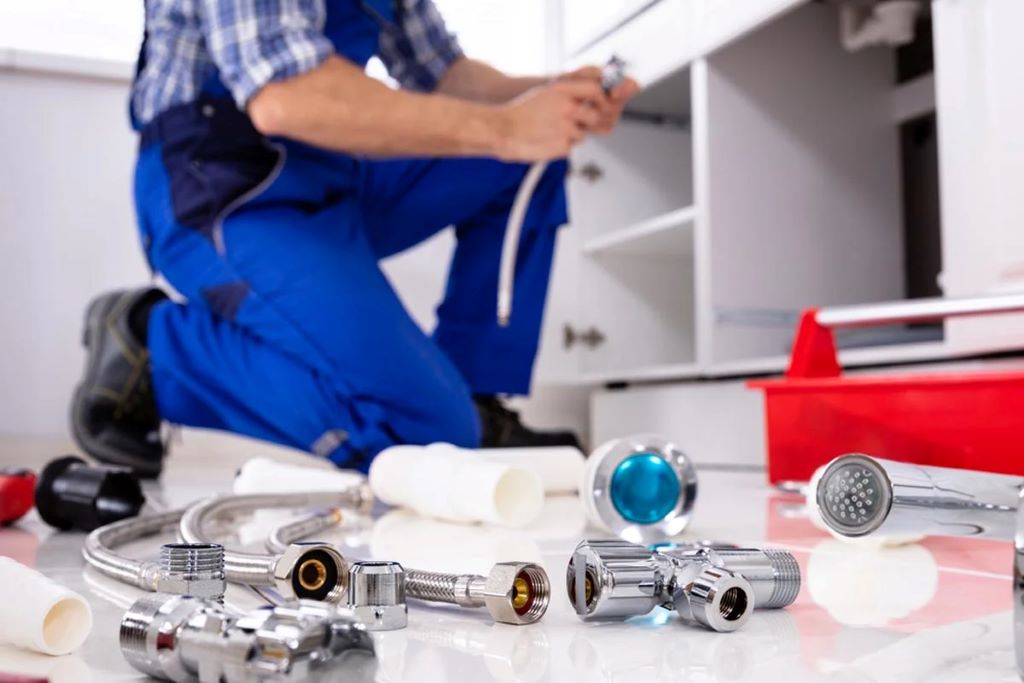To become a plumber in Texas, you must complete a plumbing apprenticeship program and obtain a state license. Becoming a plumber in Texas requires dedication, training, and licensure. Plumbers play a crucial role in maintaining and installing plumbing systems, and they are in high demand in Texas. If you’re interested in pursuing this career, it’s essential to understand the steps and requirements for becoming a licensed plumber in the state.
From apprenticeship programs to licensing exams, the path to becoming a plumber in Texas involves specific steps and qualifications. This guide will provide you with the necessary information to kick-start your journey toward a rewarding career as a plumber in the Lone Star State.
Step 1: Research The Requirements
Becoming a plumber in Texas requires understanding the licensing process and reviewing educational and experience requirements. It is important to research the specific criteria set by the state. You might need to complete a certain number of hours in an apprenticeship program and obtain a journeyman license. Additionally, the state may have specific educational requirements that you need to meet. It is essential to understand these requirements in order to pursue a career as a plumber in Texas.
Step 2: Obtain The Necessary Education And Training
Exploring Plumbing Programs and Schools: Research plumbing programs and schools in Texas to find the one that best fits your needs and schedule. Consider factors such as location, cost, and program duration.
Earning a Plumbing Degree or Certificate: Enroll in a reputable plumbing degree or certificate program that meets Texas licensing requirements. Ensure the program covers essential topics such as plumbing codes, safety practices, and installation techniques.
Participating in Apprenticeship Programs: Seek out apprenticeship opportunities with experienced plumbers or plumbing companies to gain hands-on training and practical experience. These programs offer valuable insight into the daily duties and responsibilities of a plumber.
Step 3: Gain Practical Experience
Once you have completed your plumbing training, the next step towards becoming a plumber in Texas is to gain practical experience. This is crucial to enhance your skills and knowledge in the field. One way to find entry-level plumbing jobs is by searching online job portals or classified ads. Many companies and plumbing contractors advertise their job openings in these platforms. Another option is to reach out to local plumbing companies directly or visit their offices to inquire about any available positions. Once you secure a job, you will begin working as a plumbing apprentice. This will provide you with the hands-on experience needed to develop your plumbing skills. As an apprentice, you will assist experienced plumbers in their daily tasks and learn from their expertise. Building your plumbing skills on the job is essential for your growth and progression as a plumber.
Step 4: Obtain Required Licensing And Certifications
Upon completing the necessary apprenticeship hours and acquiring the essential plumbing skills, the next step to becoming a plumber in Texas is obtaining the required licensing and certifications. This process involves applying for and taking the plumbing license exam, understanding the different license types, and completing any additional certification requirements.
The plumbing license exam is a crucial step that assesses your knowledge and competency in various plumbing areas. It is essential to prepare for this exam adequately by reviewing the relevant plumbing regulations, codes, and practices. Additionally, you need to be aware of the different license types available in Texas, such as tradesman plumber, journeyman plumber, and master plumber, each with its specific requirements and responsibilities.
In some cases, you may also need to complete additional certification requirements, depending on the type of plumbing work you intend to undertake. These certifications may include backflow prevention assembly tester, medical gas endorsement, or water supply protection specialist. By fulfilling these licensing and certification requirements, you will be well on your way to becoming a licensed plumber in Texas.
Step 5: Establish And Grow Your Plumbing Career
Step 5 in becoming a plumber in Texas is to establish and grow your plumbing career. This involves gaining experience, staying current with industry trends, and continuously developing your skills to advance in the field.
When it comes to establishing and growing your plumbing career in Texas, there are a few factors to consider. One option to consider is specializing in a plumbing niche. By focusing on a specific area of plumbing, such as residential or commercial, you can develop expertise and stand out in the industry.
Another path to consider is working for a plumbing company or starting your own business. Working for an established company allows you to gain experience, build a network, and learn from seasoned professionals. On the other hand, starting your own business gives you the freedom to create your own schedule and take on projects that align with your goals.
In addition to gaining experience in your chosen niche and deciding on your career path, continuing education and professional development are crucial. By staying updated on the latest plumbing techniques, technologies, and codes, you can enhance your skills and stay competitive.
Overall, by considering specializing in a plumbing niche, working for a plumbing company or starting your own business, and investing in continuing education, you can establish and grow a successful plumbing career in Texas.
Frequently Asked Questions On How To Become A Plumber In Texas
How Long Does It Take To Become A Plumber In Texas?
Becoming a licensed plumber in Texas typically takes around 4-5 years. This includes completing a training program, gaining 8,000 hours of supervised work experience, and passing the state licensing exam.
What Are The Requirements To Become A Plumber In Texas?
To become a plumber in Texas, you need to be at least 18 years old, have a high school diploma or GED, complete a state-approved training program, gain supervised work experience, and pass the state licensing exam.
How Much Does Plumber Training Cost In Texas?
The cost of plumber training in Texas can vary depending on the program you choose. On average, it can range from $1,500 to $10,000. However, financial aid options and scholarships are available to help offset the cost for eligible students.
Can You Become A Plumber In Texas Without Formal Training?
No, formal training is required to become a plumber in Texas. Completing a state-approved training program ensures that you acquire the necessary knowledge and skills to perform the job safely and effectively.
Conclusion
Pursuing a career as a plumber in Texas requires dedication, training, and obtaining the necessary licensure. By following the steps outlined in this guide, you can acquire the knowledge and experience needed to excel in this profession. Master the art of plumbing and discover how to become a plumber in Oklahoma, a path that not only opens up a world of opportunities but also allows you to contribute vital services to your community, enjoying a stable and rewarding career in the process.
So, don’t hesitate to take the first steps towards a successful plumbing career in Texas today!









